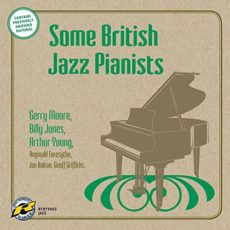
Daily Dose Of Jazz…
Reginald Foresythe was born on May 28, 1907 in London, England. He played piano from age eight and by the second half of the 1920s was working as a pianist and accordionist in dance bands in Paris, Australia, Hawaii, and California. He wrote music for films by D.W. Griffith and played in Paul Howard’s Quality Serenaders.
In 1930 Foresythe moved to Chicago, Illinois, wrote arrangements for Earl Hines and music for Paul Whiteman. Hines made one of his songs, Deep Forest, a part of his repertory, while Louis Armstrong, Fats Waller, Adrian Rollini, and Hal Kemp recorded his compositions. He worked in New York City in 1934–35, arranging for Whiteman and recording with Benny Goodman, John Kirby, and Gene Krupa.
Returning to London, Reginald assembled a studio recording group called The New Music of Reginald Foresythe. Between 1933-1936 he recorded for British Columbia and British Decca, usually spotlighting his jazzy tone poems. Among the more well known were Serenade to a Wealthy Widow, Garden of Weed, Dodging a Divorcee, and Revolt of the Yes-Men. His recordings featured reeds and sax, but no horns.
1935 saw Foresythe assembling a one-off session in New York City which featured Benny Goodman and Gene Krupa recording four of his compositions. He also recorded a number of piano solos and piano duets with Arthur Young that included at least three medleys and four arrangements of St. Louis Blues, Tiger Rag, Solitude and Mood Indigo for H.M.V. in 1938.
After serving in the Royal Air Force during World War II, he accompanied vocalists and played solo piano in London in the 1950s. He collaborated with songwriters Andy Razaf and Ted Weems, composing Be Ready with both, Please Don’t Talk About My Man with Razaf, and He’s a Son of the South with Razaf and Paul Denniker. Pianist, arranger, composer, and bandleader Reginald Foresythe passed away in relative obscurity in London on December 28, 1958.
More Posts: arranger,bandleader,composer,history,instrumental,jazz,music,piano


